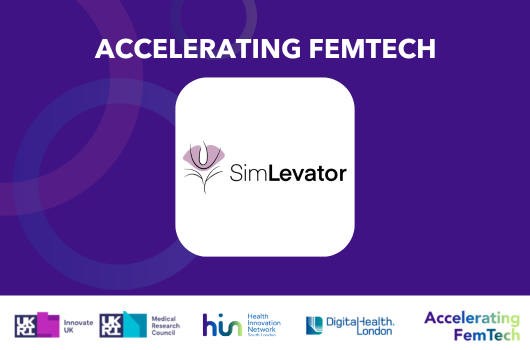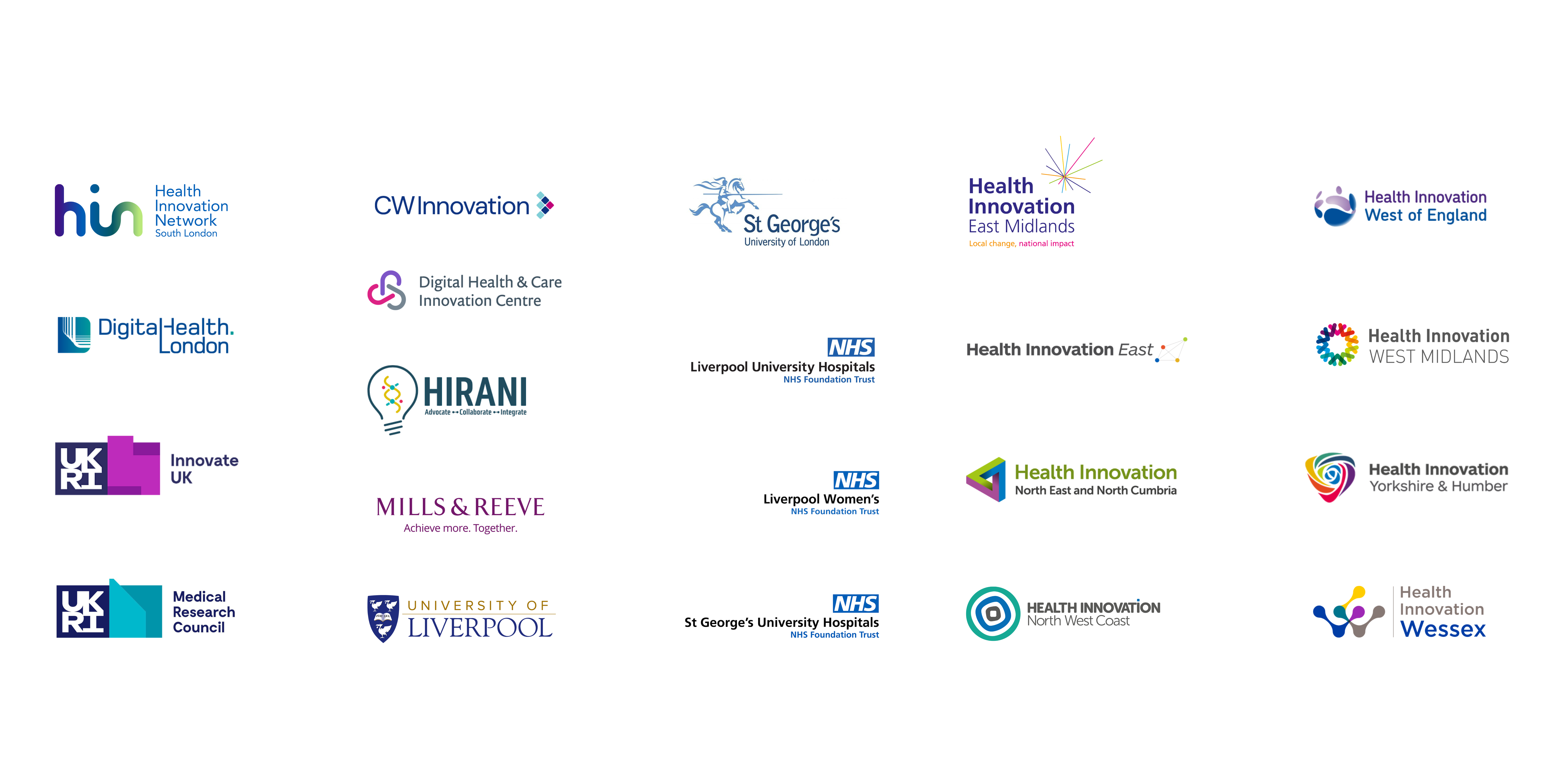Standardising pelvic floor examinations with SimLevator®

In this case study, we hear from Co-Founder Maia Heath about the vital role SimLevator® could play in improving Pelvic Health Physiotherapy education for the next generation of clinicians, supporting access to postnatal physiotherapy.
Revolutionising pelvic floor education
SimLevator® is the first and only simulator that replicates dynamic muscular movements for teaching pelvic floor examinations. The innovation replicates pelvic floor muscles across variable contraction cycles, allowing users to assess strength and function.
More than 60% of women living in the UK experience at least one symptom of poor pelvic floor health. However, according to the Chartered Society of Physiotherapy, there are only around 250 advanced practice physiotherapists in the UK who have the expertise to assess pelvic floor disorders. Current pelvic floor education relies on students practising examination skills on each other, raising issues of consent, discomfort, privacy and cultural sensitivity.
By providing an alternative to Peer Physical Examinations with a realistic, anatomically accurate simulation device, SimLevator® addresses a critical need for safer, more ethical training methods. Trainee pelvic health physiotherapists, midwives and gynaecologists develop the competence and confidence required for clinical examinations in a way that is safe, repeatable and standardised.
SimLevator® also supports the NHS Long Term Plan and its commitment to increasing access to postnatal physiotherapy by ensuring the next generation of healthcare professionals are educated in a way that is both safe and ethical.
Addressing an unmet need in women’s health education
SimLevator® began as a collaboration through Brunel’s Design for Health programme. It was spurred on and driven by a genuine passion to address the challenges faced by clinician educators at Brunel’s Physiotherapy Department to standardise teaching practices
Through my dissertation project, I brought together design and engineering expertise with research capability to ensure a highly practical and effective solution could be generated. Education providers Pelvic, Obstetric and Gynaecological Physiotherapy (POGP), and Everything Natal informed the function and usability of the SimLevator® with diverse user needs and insights.
Following the completion of my degree project, a key challenge our team has encountered has been bridging of the gap between an academic project and a commercial endeavour, particularly honing the focus toward market strategy. We are currently seeking funding to continue verifying the efficacy of the device to deliver interdisciplinary women’s health education in a safe, ethical and standardised manner.
FemTech innovation in academic spaces
The structure of the Brunel Design for Health dissertation project meant that the problem definition, market research, and product development exploration were necessary from the outset. The Double Diamond design framework, combined with human-centred design, helped identify key insights and user needs.
Approaching product research and development from within an academic institution has provided resources and expertise in study design, research ethics and execution. This has allowed for a strong base for evidence generation and a thorough commitment to efficacy and validity.
However, as we undertake spinning out and approach the project with a commercial lens, we have quickly learnt to adapt our mindsets toward business success and strategy beyond research.
My greatest advice to other spin-outs is to keep an open mind and learn as much as you can. Seek help from professionals with experience in commercial activities. Everyone has a piece of information or a new perspective to offer!
Transforming a university born innovation through Accelerating FemTech
Accelerating FemTech has been immensely useful in connecting our team with experts and fellow founders alike, establishing a network of support and mutual guidance. Crucially, it has helped our understanding of the choices available to us for investment and commercialisation as a university spinout, including how and when to seek investment and commercialisation partnerships.
Valuable contacts and conversations have begun aiding our influence of interdisciplinary decision-makers, preparing the vital market shaping needed to progress the provision of women’s health care.
We have received support and business mentorship to identify appropriate key partnerships and pathways, which have provided advice on commercialisation strategies and current market landscapes.
Most importantly, the programme has contributed to defining pitching material, sustainable business model and marketing collaterals, helping to bridge the gap between an academic project and a viable product and business. The programme has also helped us to stay motivated and focused, prompting considerations of future avenues to grow the impact of our innovation and business.
“This would be a fantastic tool to have so even at the university level - although you can see picture examples, feeling it is better.”Participant, SimLevator® pilot study
Recognising the potential of SimLevator®
SimLevator® has been recognised by Brunel University of London as the ‘Best Medical Project’ in the design school degree showcase and has been a finalist for The Engineer’s Collaborate to Innovate award.
Beyond this recognition, a pilot study held at Brunel University evaluated SimLevator’s® effectiveness, reliability and usability as an educational tool. The pilot session was the first time objective definition of muscular tone could be ascertained by experienced practitioners, with feedback from clinical champions stating that the FemTech solution can become a standard tool in pelvic health education and advanced training. The anticipated impact includes enhanced training quality, improved diagnostic accuracy, and ultimately better patient care and outcomes.
“I found it helpful for being able to take time to discuss and poke around without shame and without embarrassment for the volunteers.”Participant, SimLevator® pilot study
Next steps
We now have agreements in place with three NHS Trusts to conduct further feasibility studies to explore the usability and inter/intra-rater reliability of the device.

SimLevator ® is part of Accelerating FemTech. Cohort two of the programme runs from November 2024 to March 2025.
Accelerating FemTech is delivered by the Health Innovation Network (HIN) South London, DigitalHealth.London and partners from across the UK. It utilises Innovate UK funding as part of the Biomedical Catalyst, in collaboration with the Medical Research Council.



